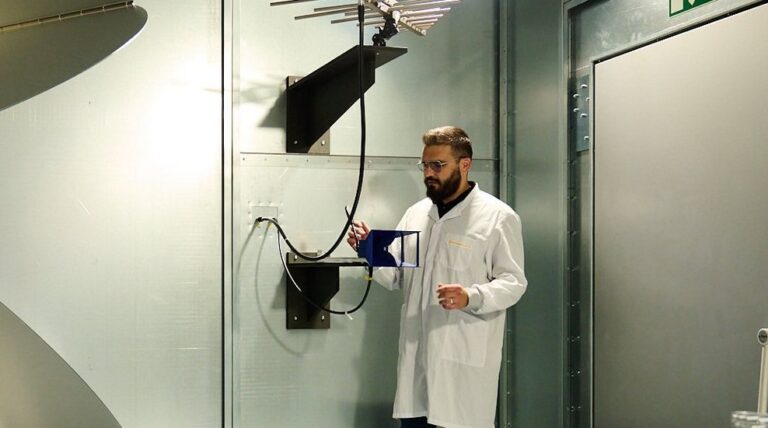Continental has invested in its Romania branch to enhance the testing of electromagnetic compatibility (EMC) for in-vehicle solutions. The company says the investment aims to ensure optimal functioning of various electronic equipment in cars by verifying their electromagnetic compatibility.
The company has equipped an EMC laboratory in Sibiu, Romania, with advanced equipment, including a reverberation chamber. This new capability in the Qualifications Laboratories department in Sibiu will enable Continental to test and validate its solutions.
“Electronic devices are tested for immunity to disturbances and emissions to ensure they meet the standards set in test protocols,” explained Cornel Tanase, head of the Qualifications Laboratories in Sibiu.
Modern vehicles are built to standards requiring electronic safety systems and optional multimedia components. These components and their wiring create an electromagnetic environment where they must function without interfering with each other.
The tests ensure devices can withstand disturbances such as radiation, inductive and capacitive couplings, and voltage instability. Testing takes place in anechoic and semi-anechoic chambers designed to prevent reflections of sound or electromagnetic waves.
The reverberation chamber includes a Faraday cage equipped with a signal generator, amplifiers, antennas and a reflector to create a radiation volume. Unlike anechoic and semi-anechoic chambers, which test devices from a single direction and plane, the reverberation chamber aims to reduce testing time while maintaining the severity level of the test.
In the chamber, electronic modules’ immunity to radiation is tested by isolating them from the external electromagnetic environment. This setup is designed to ensure conclusive results and simulates a real-world framework to guarantee product quality and user safety, according to Continental.
“The rapid introduction of new automotive technologies necessitates a comprehensive approach to ensure their proper functioning, both for safety and comfort,” said Ciprian Bleoju, head of the Qualifications Laboratories in Romania. “Efficiently verifying the functionality of electromagnetic equipment gives us more time to shape the future of mobility.”



